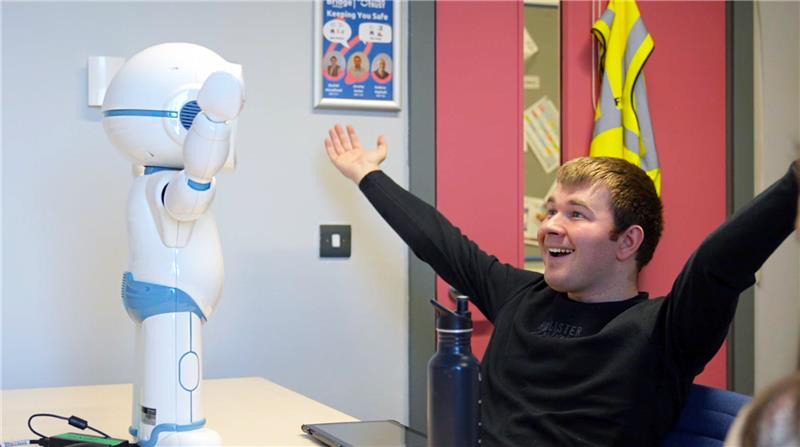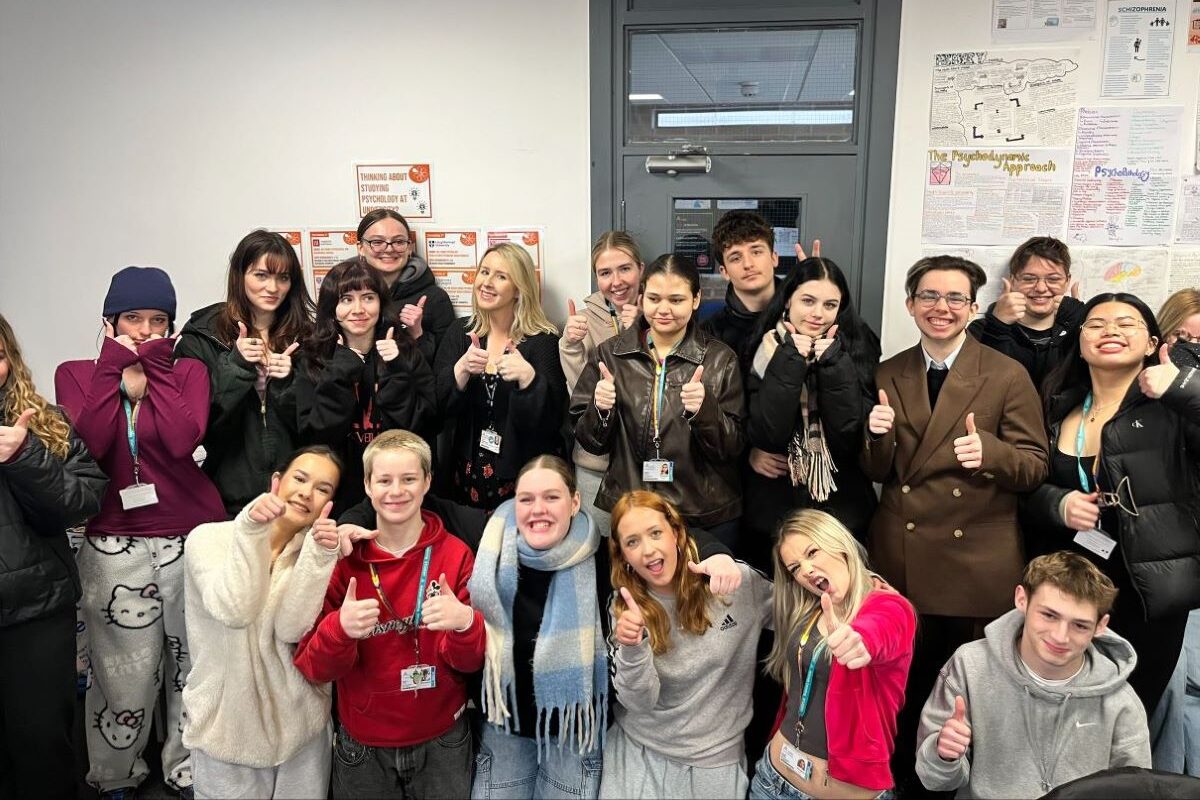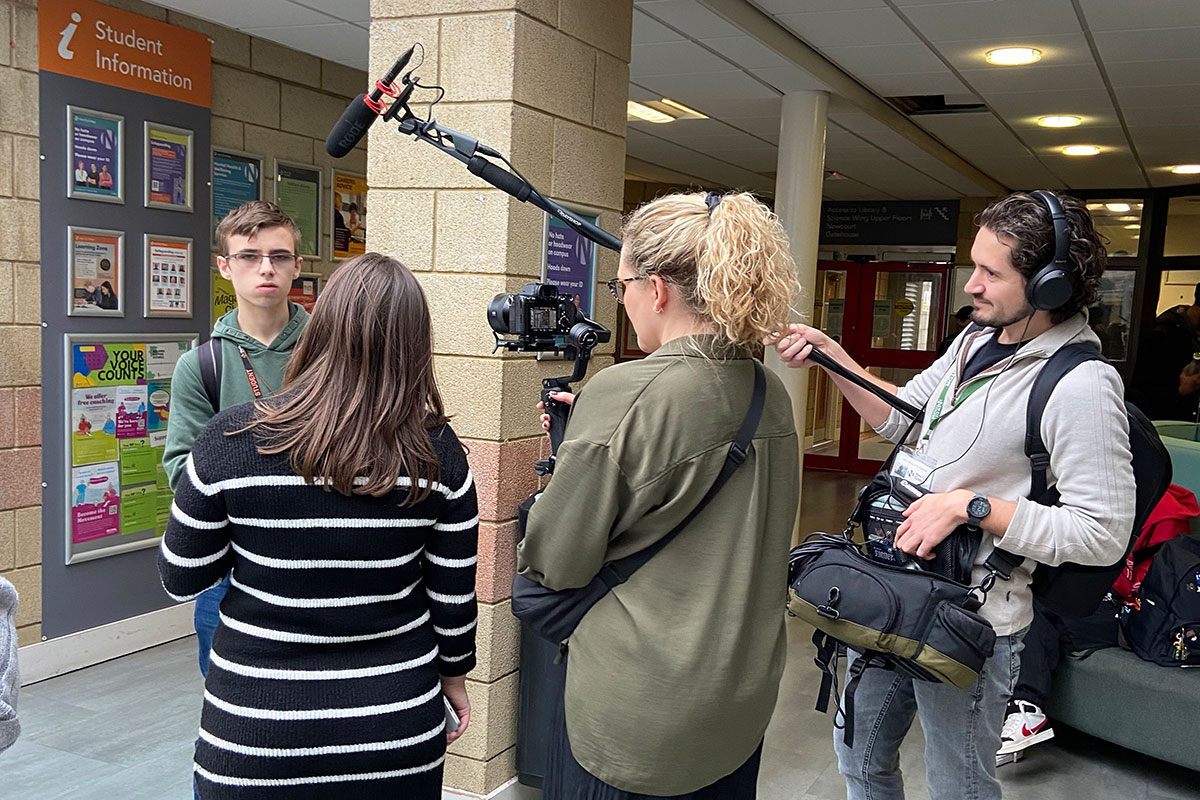Robot ‘playmate’ improving communication skills for young people with autism in Greater Manchester

Parents of young people with complex educational needs are raving about a robot which is helping them to communicate and improve their levels of confidence.
The QTrobot – an engaging social robot – helps young people with autism to learn and practice new social, emotional, and cognitive skills.
It is being used at the Bridge College in Openshaw to improve learning for pupils thanks to funding from the Greater Manchester Health and Social Care Partnership’s (GMHSCP) mental health team and Association of Colleges (AoC).
Featuring a liquid crystal display (LCD) face and robotic arms, it supports young people who may feel overwhelmed by human contact to become more comfortable in educational settings. By asking questions, the robot encourages young people with autism and special education needs to interact more with their learning – and it is having a positive impact.
This includes 24-year-old Tom Boyd, from Bramhall near Stockport, who has autism. His mother Frances believes his future is looking brighter thanks to the work of his tutors at Bridge College and his sessions with the robot.
She said: “Tom shows classic symptoms of autism in that he finds it difficult to interpret people’s body language or make eye contact. But having spent time using the robot we have seen a real improvement in his levels of confidence and how he interacts with other people.
“I really do feel, thanks to the educational support Tom has had with the robot and the methods used at Bridge College, that he has much more opportunity to be able to live in and contribute to his local community.”
Researchers and developers at LuxAI* found that the robot draws and maintains people’s attention, and improves learning and reduces anxiety, especially when compared to a standard tablet app.
Frances added: “Tom has really enjoyed working with the robot and college staff have been really supportive and have praised his development. He has become less self-stimulatory (repetition of movements) and pays much more attention to people now.”
GMHSCP’s programme with the AoC is in collaboration with further education and sixth form colleges in Greater Manchester to support the mental health and wellbeing of staff and students.
Professor Sandeep Ranote, interim Greater Manchester medical executive lead for mental health, said: “I’m so pleased to see that the QTrobot has played a key role in helping people like Tom to engage more in their learning and with other people.
“Working alongside the AoC and students and staff across Greater Manchester educational centres has really helped to benefit learners and together we have identified good practice that can be shared.
“There are a number of projects we work on together which benefit apprenticeships, mental health first aid, social prescribing and supporting transition and student retention. We aim to move further into the digital space for the benefit of children and young people and support further initiatives such as this.”
Jeremy Swinn, principal at Bridge College, said: “The QT robot has really enhanced learning opportunities for some of our students that find social interactions and overstimulating environments difficult to manage.
“We have found that students have increased their engagement in the classroom when interacting with the robot and have developed skills though its built-in cognitive, social, communication curriculum.”
*LuxAI was created following a research project at the Interdisciplinary Centre for Security, Reliability and Trust (SnT) of the University of Luxembourg, funded by the Luxembourg National Research Fund (FNR) under its Proof of Concept scheme. The business model of LuxAI is developing and constructing social robots.











Responses